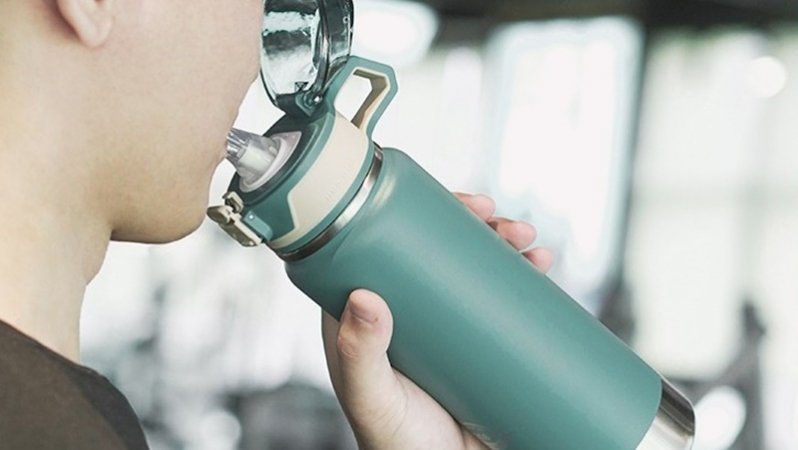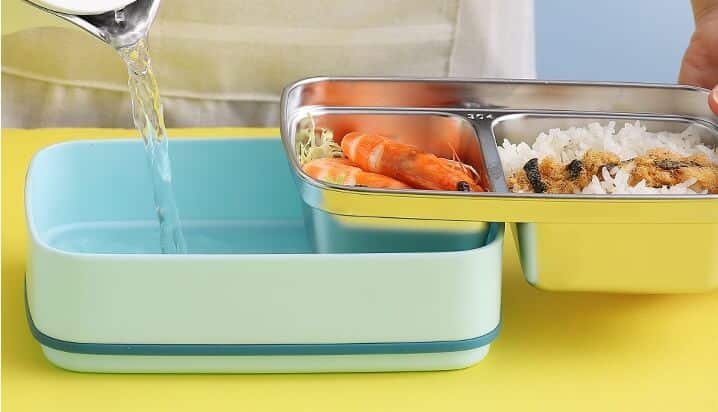Are Stainless Steel Water Bottles Safe: A Complete Guide!
Last Updated on March 11, 2024 by Tina ShaoWe’ve discussed the benefits of stainless steel insulated water bottles before, but what about their safety? After all, your health is always a top priority. We’ll review the most frequently asked questions about whether or not stainless steel is safe for drinking.
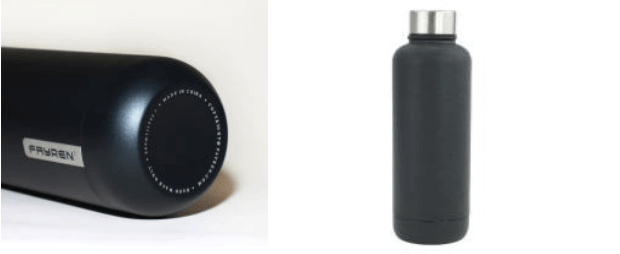
Stainless steel is safe and suitable for use in the abovementioned ways. Stainless steel water bottles are generally safe, but taking precautions is essential, especially if you are allergic or sensitive to certain metals.
If you’re concerned about stainless steel water bottles’ safety, talk with your doctor or contact a poison control center for more information.
We hope you have enjoyed reading this article and will consider using stainless steel water bottles daily.
Why are stainless steel water bottles safe?
Stainless steel water bottles are considered safe, as they’re non-toxic and don’t contain Bisphenol A (BPA). This chemical is used in the production of plastic and has been linked to some diseases.

The reasons why stainless steel water bottles are considered safe include the following:
- They are BPA-free. Stainless steel is made of iron and chromium, meaning no harmful chemicals can come through its surface that could harm you or your family members who use the same bottle.
- They’re easy to clean. Stainless steel water bottles don’t require unique cleaning methods and can be washed in a dishwasher. > They’re durable. Stainless steel is tough and won’t break easily if dropped or thrown against hard surfaces such as concrete, stone, etc. They’re lightweight.
- They’re easy to grip. Since stainless steel water bottles are made from a single piece of metal, they don’t have any joints or holes that might cause them to slip out of your hands when wet.
- Easy to carry: They’re also lightweight and easy to carry around; they come in various beautiful designs that are stylish when you use them at home or on the go. These bottles have a wide mouth, making them easy to pour into another container or cup when necessary. This makes it easier than carrying multiple cups while hiking with friends!
Are all stainless steel water bottles safe?
Not all stainless steel water bottles are safe. Some are unsafe, so you must be careful with your choice.
How can you tell if your stainless steel bottle is safe?
- Well, the first thing to look at is the mouthpiece. Is there a rubber seal on it? If so, it will not be safe because this allows bacteria and other germs into your water bottle.
- Second, does the bottle have an insulated sleeve? If so, then it’s probably safe. The last thing you need to consider is how long it will take to use up your drink. You don’t want to leave it sitting in your car or house for hours.
Are stainless steel water bottles safer than plastic?
Yes, stainless steel water bottles are safer and better than plastic. Stainless steel bottles are made from stainless steel, and plastic bottles are made from polyethylene terephthalate (PET).
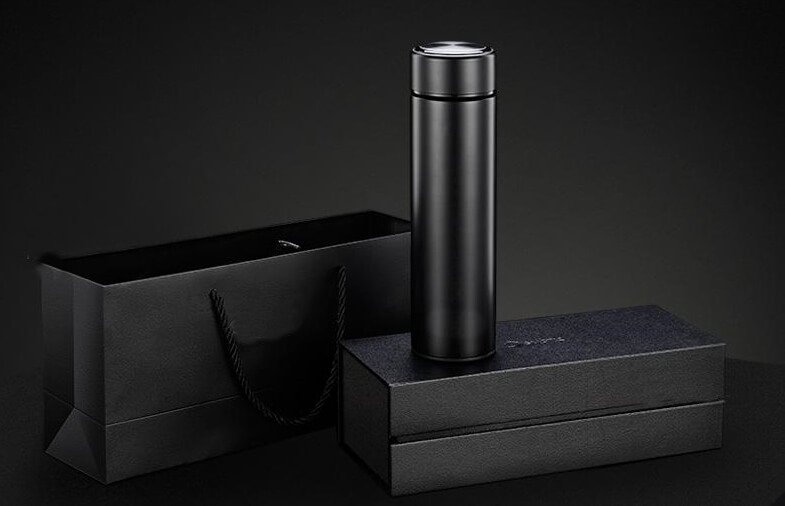
There are many benefits to using stainless steel water bottles over plastic ones:
- BPA Free: Plastic water bottles contain BPA (Bisphenol A), which can cause hormone disruption. However, stainless steel is free of BPA and other chemicals that could leach into your drink.
- Non-Toxic: Stainless steel is non-toxic and recyclable, whereas plastic contains harmful chemicals that can affect your health if the bottle breaks or melts.
- Durable & Long Lasting: Stainless steel has a long lifespan because it does not degrade as some plastics do over time due to sunlight exposure or heat from microwaves and dishwashers! This also makes them more durable for travel and everyday use at home/office/school, etc.
- They are made of durable material that will not break or melt down quickly, even when exposed to sunlight or heat from microwaves or dishwashers.
- Stainless steel water bottles are recyclable, so you can reuse them again after using them once!
What can you put in a stainless steel bottle?
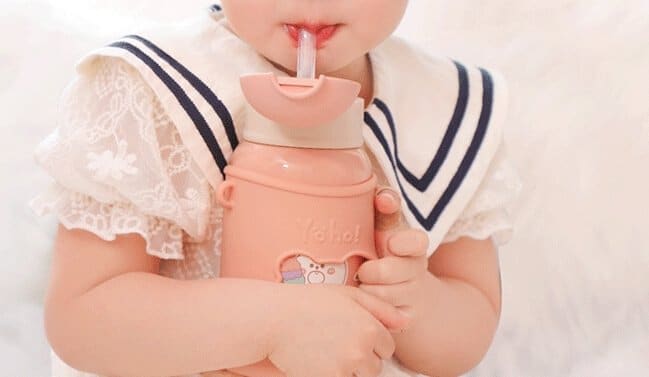
Stainless steel bottles, including water, tea, and coffee, are safe for drinks. You can also add juice to your stainless steel bottle, not just the kind you squeeze yourself! A carton’s fruit or vegetable juices are likely fine if not made from concentrate.
However, if you want to get creative with your drinks and try something new, there’s no reason why you can’t do it safely, either! Add some cocoa powder for an extra twist on hot chocolate (or cold cocoa).
Wine bottles aren’t the only ones that work well with this type of container; beer bottles will fit right into one, too! Soda is another easy-to-find beverage that fits nicely inside a stainless container.
You may not have considered using sauce in your water bottle before now, but it’s standard practice! Just be sure to keep it at room temperature. Hence, there isn’t any risk of spoilage or contamination from bacteria being introduced by heat during transit time between kitchen countertops and outdoor picnic tables.
What can you not put in a stainless steel bottle?
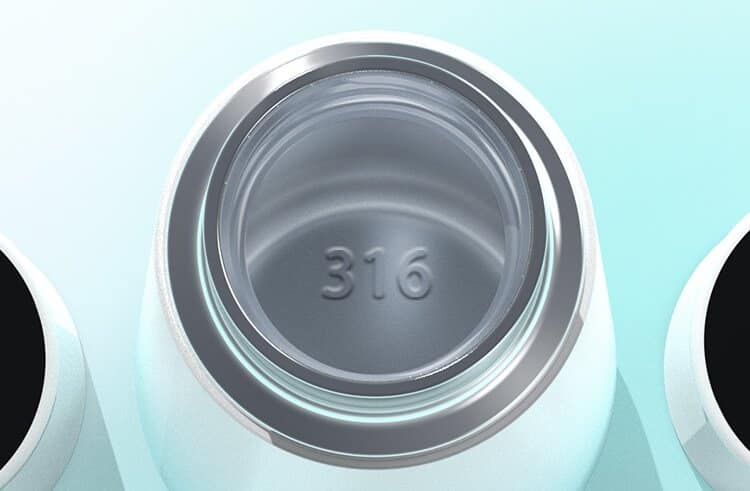
Stainless steel bottles are safe and durable, but there are a few things you shouldn’t put in your bottle. These include:
- Carbonated beverages. Carbonated water can damage the seal, so it should not be used for this purpose.
- Acidic liquids. Acids can react with the metal and cause corrosion, so you shouldn’t store them in a stainless steel bottle for long periods.
- Salty liquids like soy sauce or tamari sauce corrode your bottle over time. This also includes pickled foods like olives or cucumbers that may have higher salt content than expected!
- Hot tea or coffee. The heat from these drinks could damage the stainless steel and affect its taste.
- Lemonade or other acidic drinks (like orange juice). These can also damage the surface of your bottle, so consider using glass if you make a lot of lemonade/orange juice at once!
- Milk or other dairy products. Dairy products contain proteins that can stain if left in contact with stainless steel for too long—especially if they get warm enough for bacterial growth!
Tips for Using stainless steel water bottles for more safety
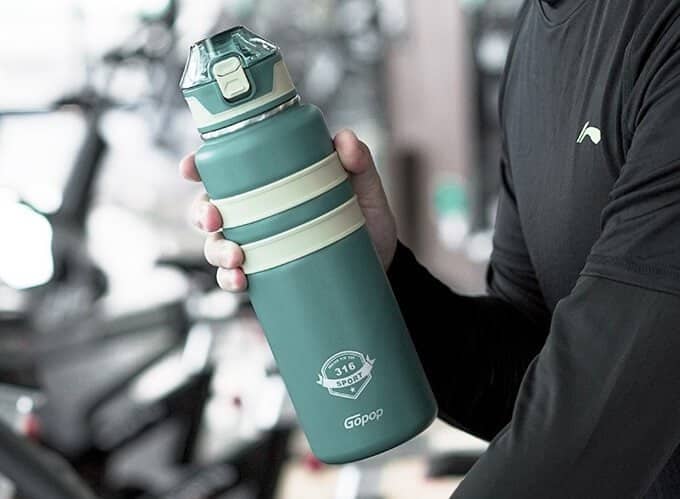
There are a few things to keep in mind when using your stainless steel water bottle:
- Avoid chemicals. It is best to avoid putting your stainless steel water bottle in contact with strong acids, bases, or chemicals that may damage the surface of your bottle. These can come from cleaning products, household items (such as oven cleaners), and certain foods like vinegar.
- Avoid sharp objects. You should also keep your stainless steel water bottle away from any sharp or abrasive surfaces that could scratch the surface of your bottle and possibly cause it to rust. This includes other metal objects like keys or coins.
- Do not put the bottle in contact with extreme temperatures. Stainless steel water bottles can be placed in the freezer or microwave without problems, but they should never be subject to temperatures exceeding 180°F (80°C). If your bottle is made from a material that can withstand more heat than this, you may end up reading manufacturer instructions before doing so.
- Keep bottles out of extreme vibrations. Because stainless steel water bottles are metal and plastic, they should always avoid vibration-causing equipment like blenders or power tools. This is especially true if there’s a chance that the lid might come off while it’s being used.
- Keep the bottle away from extreme temperatures. If the stainless steel water bottle is exposed to extreme temperatures, it can cause the inner layer of your bottle to break down and release harmful chemicals into your drinking water.
- Keep the bottle away from sunlight and UV radiation. Ultraviolet rays can damage any material over time. Hence, minimizing exposure is always a good idea for the long-term use of whatever product you use (including stainless steel water bottles).
- Don’t use abrasive cleaners, like those for cleaning dishes or pots and pans, as this can scratch the bottle’s surface. Cleaning a stainless steel water bottle is best with soap and water.
- Please don’t put it in the dishwasher, microwave (or freezer). These may damage the materials from which it’s made and make it unsafe.
- Always wash the bottle with soap and water after every use. This will help prevent bacteria from growing on its surface. * Do not microwave or freeze your stainless steel water bottle to clean it, which can cause rust.
Does hot water damage stainless steel?
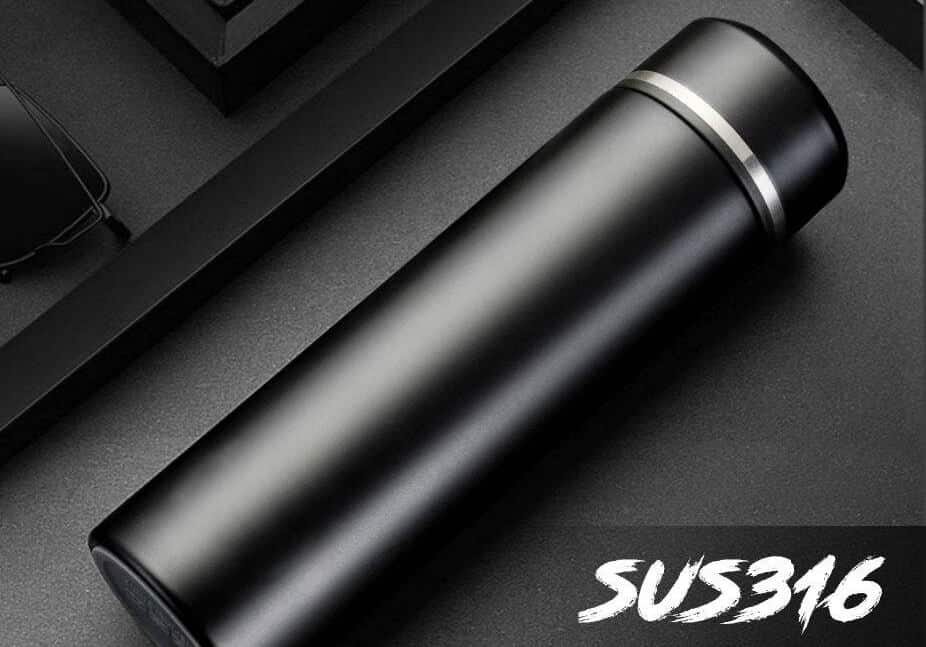
Well, no. Stainless steel is a strong material that can withstand extreme temperatures and situations. It’s also not affected by corrosion like some other metals are, so it doesn’t rust or corrode in any way.
As long as the hot water is not boiling and the bottle is designed to withstand high temperatures (like most), you don’t need to worry about damaging your water bottle.
Second, stainless steel water bottles are made of 304-grade stainless steel, which conducts heat well; this means your drinks will stay at an optimal temperature longer than an insulated bottle. This is good news if you’re looking to keep your tea warm as you head into work or if you want something colder to sip on during your commute home from work in the summer!
Does water go wrong in a stainless steel water bottle?
Though it’s not guaranteed, your water will stay fresh for much longer if you clean your bottle often. Sometimes, there is an odor or taste of metal when you use a stainless steel container, but as long as you keep it clean, it shouldn’t be noticeable after a few uses.
If the smell or taste is apparent even after a thorough sanitization, try soaking the container in diluted vinegar for a few hours before washing and drying.
If that doesn’t do the trick, see if there are any plastic or silicone parts to your bottle (like handles or lids) that could absorb odors and tastes from other foods or drinks. If so, purchase replacements made entirely of stainless steel.
Do stainless steel water bottles leach nickel?
Stainless steel water bottles do not leach nickel. As long as you purchase a high-quality stainless steel bottle that has been appropriately polished and coated to prevent food particles from getting stuck in the crevices of the metal, then there should be no problems with leaching.
If you’re concerned about potential health risks, buy a bottle from a reputable brand like Klean Kanteen or Soma. These companies test their products for metal corrosion (such as nickel) before shipping them out to customers so that they can rest assured that their products are safe for use.
Does stainless steel leach into the water?
There is no reason to worry about stainless steel leaching into your water. The metal has been carefully designed for its durability and corrosion resistance, so it does not leach into any liquids.
If you’re still concerned about using a stainless steel bottle, we recommend looking into other types of metal containers, like aluminum or glass bottles.
If you decide to go with a stainless steel bottle, then there are several steps you should take to ensure that it doesn’t leach into your water. First, only using bottles approved by the Food and Drug Administration (FDA) is essential. This can be done by checking the package before buying.
Are stainless steel water bottles recyclable?
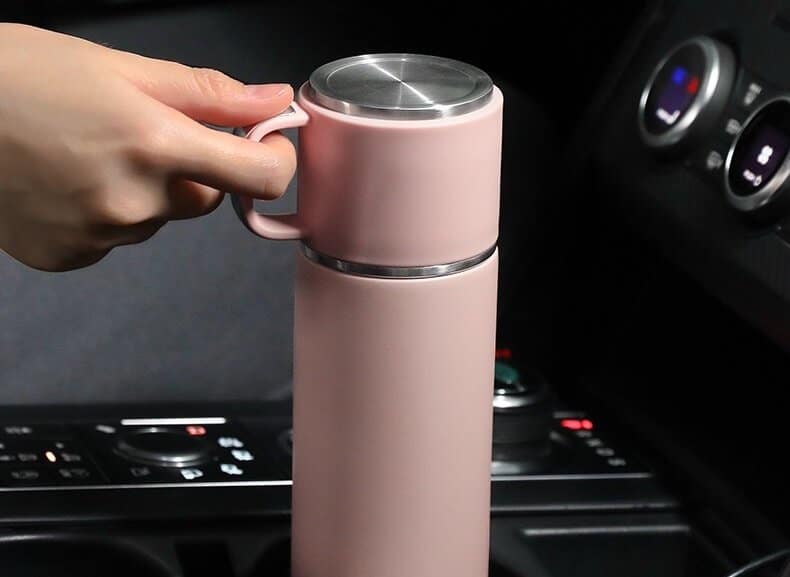
If you want to make a difference in the environment and help keep our planet healthy, stainless steel water bottles may be the right choice. While they’re not 100% recyclable, they can be recycled in most places.
To recycle your stainless steel water bottle:
- Take apart the bottle and separate it into its different parts. The lid can usually be recycled with other metal objects like tin cans. The tube should be placed with plastic materials for recycling purposes and not be thrown away with glass bottles or aluminum containers (or any other water bottle material).
- Find a location near you that accepts recycling of all types of metals by visiting www.earth911.com and entering “stainless steel recycling” into their search bar or calling your local municipality’s waste management department if you cannot access this website!
Please try your best to recycle your stainless steel water bottles if possible. This will help to save our planet by reducing the amount of waste that goes into landfills.
Are stainless steel water bottles and dishwashers safe?
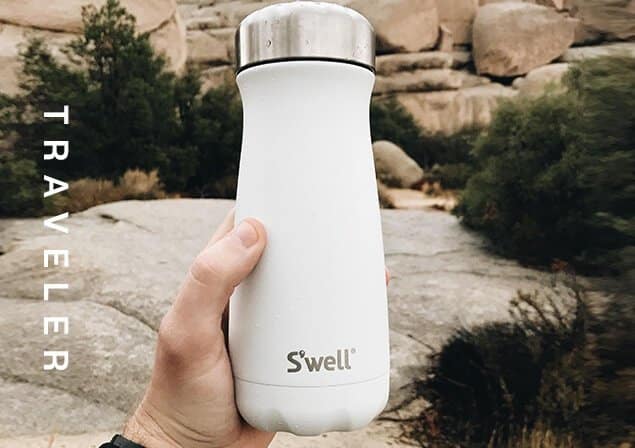
Stainless steel water bottles are dishwasher-safe but not microwave-safe. If you put your stainless steel water bottle in the dishwasher with a plastic lid, you could end up with plastic in your drink. That’s not good!
The best way to clean your stainless steel water bottle is by hand. Washing it by hand doesn’t take much time or effort—fill it with warm, soapy water and scrub it inside and out.
Ensure all of the soap residues have been rinsed off completely before using your bottle again because any leftover soap could leave an unpleasant taste in your mouth when drinking from it later on down the road (gross!).
If you have hard water stains on your stainless steel bottle, I recommend soaking them overnight with lemon juice or vinegar before rinsing them off and drying them thoroughly afterward. This will help prevent browning/staining from occurring over time due to metal oxidation reactions.
Why are some stainless steel water bottles, not dishwasher safe?
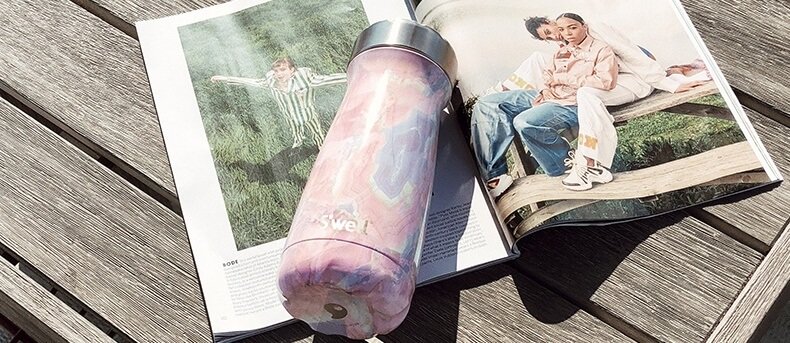
Dishwashers are fantastic for cleaning dishes but are not as hot as water bottles. The heat and the banging around can damage the bottle’s finish, which will cause leaks in your bottle.
Plus, there’s also the issue of the cap getting damaged by detergent or other chemicals during a wash cycle. And don’t forget all those scratches if you use a plastic tub for your dishwasher!
The same goes for caps and tops with attached straws; these parts can quickly get bent or torn from all that movement inside those washer bins. So, if you want to keep your cap in good shape, give it some TLC by hand washing it instead!
The dishwasher can damage the bottle, cap, mouthpiece, straw, gasket, and seal. Plus, your bottle will get scratched up from all those rubbing dishes!
Conclusion
As long as you’re careful about what kind of water you put into your stainless steel water bottle, they are an excellent choice for health and environmental reasons. They don’t leach chemicals into their contents and are easy to clean. While some people worry about how hot water will affect their bottles or whether it will give off an odor over time, scientific research has proven these myths false.


